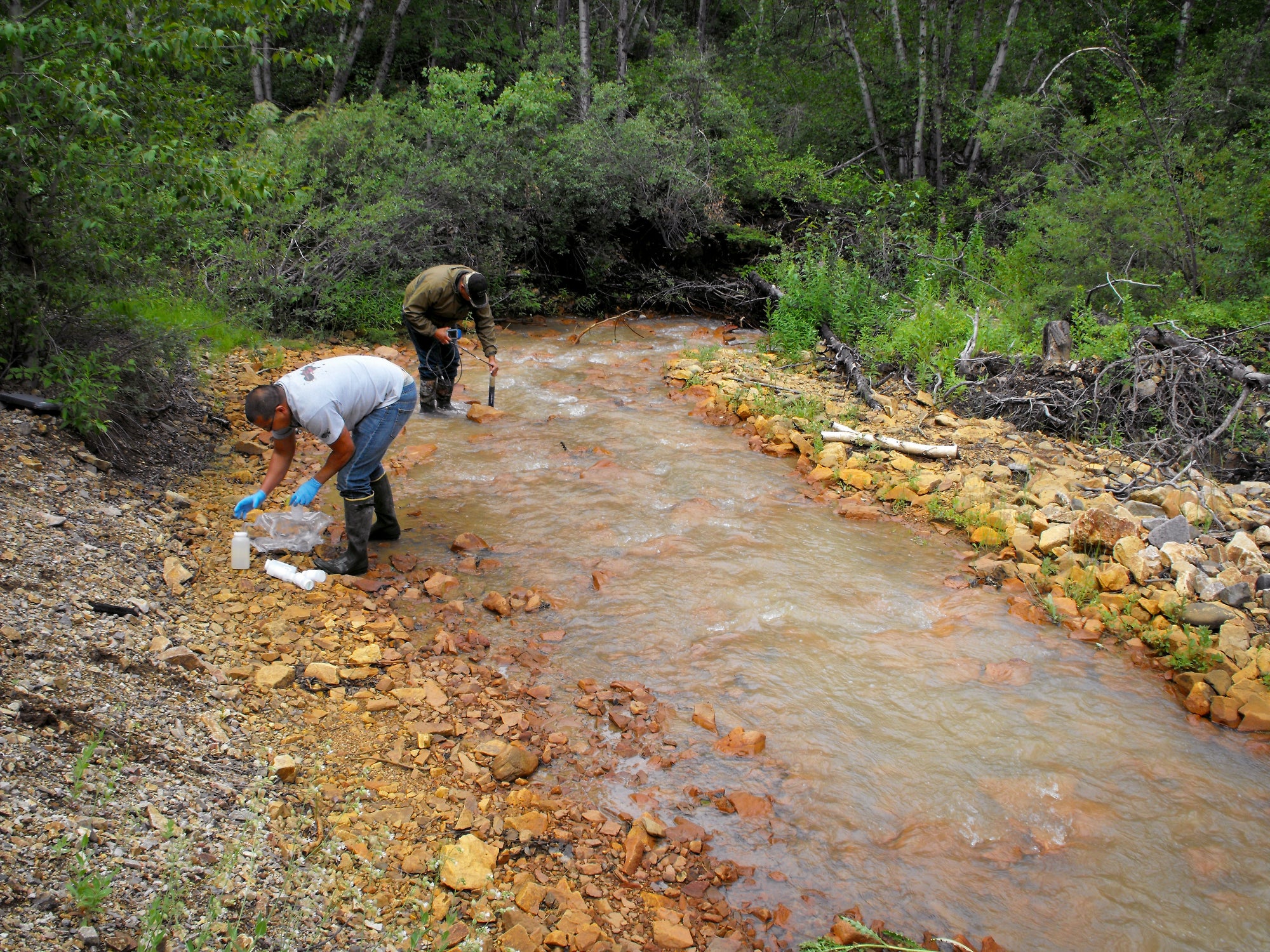Demanding Accountability in Montana’s Little Rocky Mountains
Illegal mining in the Zortman-Landusky Reclamation Area has worsened an environmental justice disaster for the Fort Belknap Indian Community.
The law is clear that would-be miners must have permits to mine. Yet, some miners flout the law, creating chaos and destruction in their wake. And some miners go so far as to illegally mine in an area that bears the lasting scars of one of the worst environmental justice disasters in Montana’s history. That is exactly the unprecedented situation faced by the Fort Belknap Indian Community — comprised of the Gros Ventre and Assiniboine Tribes—in Montana’s Little Rocky Mountains. Earthjustice and our partners, including the Tribes, are joining the state’s Department of Environmental Quality (DEQ) in demanding accountability.
The Zortman mine, part of the broader Zortman-Landusky Reclamation Area, has left a legacy of persistent toxic pollution in the Little Rocky Mountains, disproportionately impacting the Fort Belknap Indian Community’s lands and waters. Operated for nearly three decades as open-pit, cyanide heap-leach mines, the Zortman-Landusky mines plagued the surrounding area with cyanide and acid mine drainage, contaminating surface and ground waters hydrologically connected to the mines. Adding insult to injury, in 1998, the mine operators declared bankruptcy and left behind a drastically underfunded clean-up effort, which has largely been shouldered by taxpayers.
Despite the shuttering of the mines, acid mine drainage and other contaminants such as cyanide, selenium, and nitrates continue to contaminate water in the area, including water flowing onto the Fort Belknap Indian Reservation. This acid mine drainage will perpetually pollute the area and the water must be continually treated. Even with ongoing treatment, a plume of contaminants continues to creep onto Reservation lands, threatening key cultural sites and the Fort Belknap Tribes’ ceremonial and powwow grounds.
The Tribes have a long history of opposing mining in the region. The Little Rocky Mountains were once entirely within the boundaries of the Fort Belknap Indian Reservation, but when gold was discovered in the 1880’s, the federal government pressured the Tribes to cede the gold-bearing areas to the United States. The Zortman and Landusky mine sites are surrounded on three sides by the Reservation. The land desecrated by the mines in the Little Rocky Mountains holds profound cultural significance to the Tribes. Yet the Tribes not only face continued pollution of these sacred grounds, but now must also contend with new miners whose disregard for the Tribes’ strongly held ties to the land only piles on to their environmental justice burden.
These miners, Luke Ployhar and Owen Voigt, have unrelentingly attempted to renew mining at the former Zortman site for the past four years. The Tribes, and allied conservation organizations, have pushed back at every turn, including by filing litigation challenging the environmental analysis for new mining and submitting comments on new mining proposals. Because of this advocacy, Montana’s DEQ, charged with permitting mining in the state, began consulting with the Tribes on mining proposals and ultimately required Ployhar to complete an environmental impact statement (EIS) in 2022, specifically citing the need to further examine impacts to tribal cultural resources. But the agency later discovered that Ployhar and Voigt had already charged forward with mining without authorization, threatening nearby waters with additional acid mine drainage and compromising the reclamation efforts already undertaken at the site.
In April 2023, after months of failed negotiations with the miners, DEQ brought an enforcement action against Ployhar, Voigt, and their respective companies, for circumventing the Montana permitting process and illegally mining at the Zortman site. DEQ has requested over half a million dollars in fines and permanent injunctive relief to prohibit Ployhar, Voigt, and their companies from future mining until the disturbances are reclaimed and the penalties are paid. Earthjustice, representing the Fort Belknap Indian Community, Montana Environmental Information Center, Earthworks, and Montana Trout Unlimited, are intervening in the case to support DEQ in its enforcement action.
DEQ is right to take action against illegal mining, especially in an area plagued with such a catastrophic mining history. Our intervention in this suit is to ensure that Fort Belknap Indian Community voices are centered in this issue of profound importance to the Tribes, and that Ployhar and Voigt are held responsible for their dirty deeds.
Fort Belknap Indian Community President Jeffrey Stiffarm said it best: “[Ployhar’s and Voigt’s] intentional and deliberate disregard of the state’s mining permitting process further shows their bad faith efforts and determination to push their profit driven agenda. There is no regard for the letter of the law, the environment, or spiritual beliefs. Our Gros Ventre and Assiniboine beliefs and responsibilities are to protect our traditional and spiritual lands and react as good stewards of the land. Even though the current boundaries are drawn by non-Indian laws, our ancestral lands include the mined area, and the pollution created by mining will flow onto Fort Belknap Indian Reservation lands. We, as a Council, are entrusted and charged with the responsibility to protect the land.”
DEQ is entrusted and charged with holding bad actors accountable when they destroy Montana’s lands. We look forward to supporting the agency’s effort to demand accountability for the sake of the Fort Belknap Indian Community and all of Montana’s downstream communities.
Established in 1993, Earthjustice's Northern Rockies Office, located in Bozeman, Mont., protects the region's irreplaceable natural resources by safeguarding sensitive wildlife species and their habitats and challenging harmful coal and industrial gas developments.
Perry Wheeler
Public Affairs and Communications Strategist, Earthjustice
pwheeler@earthjustice.org
